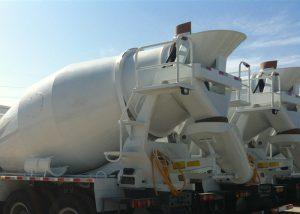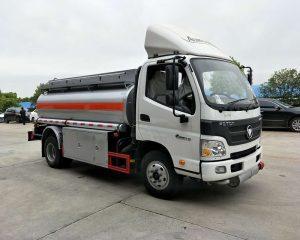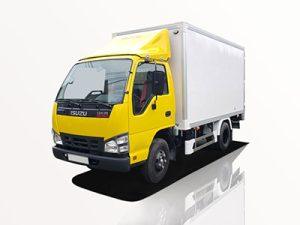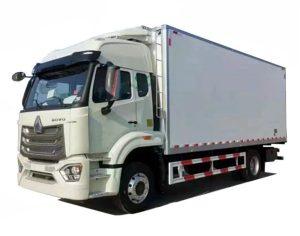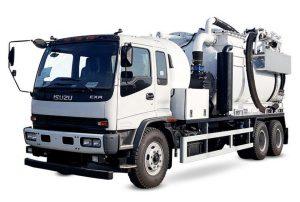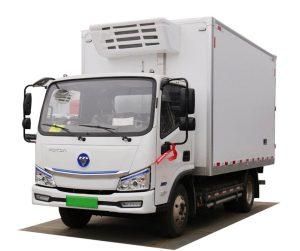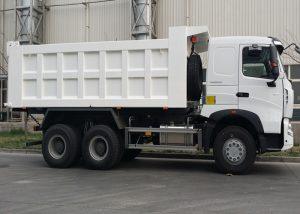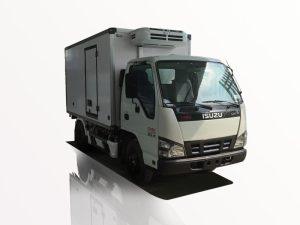Monday to Saturday - 8:00 -17:30
Baler Trash Compactor: The Ultimate Waste Management Solution
In today’s world, efficient waste management is more crucial than ever. With rising environmental concerns and the growing need to reduce landfill use, businesses and municipalities are constantly on the lookout for innovative solutions. One solution that has gained significant popularity is the baler trash compactor. This comprehensive article will delve into everything you need to know about baler trash compactors, their benefits, applications, and how they can significantly improve waste management processes.
What is a Baler Trash Compactor?
A baler trash compactor is a specialized machine designed to compress waste materials into dense bales, making transportation and storage easier and more efficient. These compactors not only reduce the volume of waste but also improve recycling efforts by enabling better sorting and processing of recyclable materials.
The Mechanics of Baler Trash Compactors
Baler trash compactors function by using hydraulic pressure to compress waste. The machine stores waste in a chamber, and once it’s filled, the baling mechanism compresses it into a compact form. After the baling process is complete, the bales can be secured with wire or plastic straps for easier handling.
Types of Baler Trash Compactors
- Vertical Balers: Designed for low-volume waste, these are typically used in small businesses or retail environments.
- Horizontal Balers: More suitable for larger operations, horizontal balers can handle high volumes of waste with greater efficiency.
- Automatic Balers: These balers operate with minimal human intervention, making them ideal for settings with high throughput requirements.
Benefits of Using a Baler Trash Compactor
Baler trash compactors offer several advantages that make them a preferred choice for waste management across various industries.
1. Volume Reduction
One of the most significant benefits of baler trash compactors is the substantial reduction in waste volume. By compressing materials into dense bales, businesses can save on storage space and reduce transportation costs.
2. Enhanced Recycling Opportunities
Baler compactors facilitate better sorting and processing of recyclable materials. By compacting recyclables, different types can be more easily organized, making the entire recycling process more efficient.
3. Increased Safety
By reducing waste volumes, balers help keep workspaces cleaner and safer. Less clutter means fewer safety hazards, thus lowering the risk of accidents and injuries.
4. Environmental Impact
Using a baler trash compactor contributes to environmental sustainability. By promoting recycling and reducing landfill waste, these machines play a vital role in conserving resources and minimizing carbon footprints.
5. Cost Savings
Investing in a baler trash compactor can lead to significant cost savings in waste disposal fees, transportation costs, and labor associated with waste management.
Common Applications of Baler Trash Compactors
Baler trash compactors are versatile machines that find applications in various sectors. Here are some common industries where they are widely used:
1. Retail Industry
Retail businesses generate a lot of cardboard and paper waste. Baler trash compactors help these businesses recycle their materials more effectively, improving their bottom line while being environmentally responsible.
2. Manufacturing Industry
Manufacturers produce various types of waste, including plastic, metal, and paper. Baler compactors enable them to compress and recycle these materials efficiently.
3. Food and Beverage Industry
The food and beverage sector creates significant amounts of waste. From cardboard boxes to plastic packaging, balers can effectively compress these materials for recycling.
4. Warehouses and Distribution Centers
These facilities generate large volumes of waste, particularly cardboard and plastic. Baler trash compactors can optimize waste management processes, helping these centers streamline operations.
Choosing the Right Baler Trash Compactor
Selecting the right baler trash compactor for your needs can be overwhelming. Here are some key factors to consider:
1. Type of Waste
Identify the type of waste your business generates. This will help determine whether you need a vertical or horizontal baler.
2. Volume of Waste
Assess your waste volume. For high-volume operations, automatic or horizontal balers may be more appropriate.
3. Space Constraints
Consider the available space for the machine. Vertical balers are usually more compact and can fit in tighter areas, while horizontal balers require more room.
4. Budget
Establish a budget for your baler trash compactor. Keep in mind not only the purchase price but also maintenance and operational costs.
Maintenance Tips for Baler Trash Compactors
Proper maintenance of your baler trash compactor is essential to ensure its longevity and efficiency. Here are some practical maintenance tips:
1. Regular Cleaning
Keep the baler clean by regularly removing debris and waste from the machine. This helps prevent malfunctions and ensures smooth operation.
2. Lubrication
Regularly lubricate moving parts to reduce wear and tear and ensure efficient functioning.
3. Check Hydraulic System
Inspect the hydraulic system for leaks or irregularities. Addressing these issues promptly can prevent further damage to the machine.
4. Monitor Electrical Components
Ensure that all electrical connections are secure and that no parts are frayed or damaged. Faulty electrical systems can compromise the baler’s performance.
Real-Life Examples of Baler Trash Compactor Efficiency
To better illustrate the effectiveness of baler trash compactors, here are two practical examples:
Example 1: Retail Store Implementation
A large retail chain implemented vertical balers in their various stores to manage cardboard waste. Within a few months, they reported a 50% reduction in waste volume, which led to 30% lower waste disposal costs. The saved funds were redirected towards more sustainable initiatives, enhancing the company’s environmental footprint.
Example 2: Manufacturing Facility Optimization
A manufacturing facility generating substantial plastic waste installed a horizontal baler. The introduction of the baler led to a 70% increase in recycling efficiency, significantly reducing the facility’s landfill contributions. Recycling the bales also provided additional revenue, contributing positively to the company’s overall profitability.
Future Trends in Baler Trash Compactors
The industry of baler trash compactors is continuously evolving. Here are some emerging trends to watch:
1. Automation and Smart Technology
The integration of IoT technology in balers facilitates real-time monitoring and predictive maintenance, enabling businesses to address issues before they occur.
2. Increased Focus on Sustainability
As environmental concerns increase, more companies are seeking sustainable waste management solutions. Baler manufacturers are responding by creating more efficient and eco-friendly machines.
3. Customization Options
Businesses are looking for more tailored solutions to meet their specific waste management needs. Manufacturers are offering customizable balers to cater to unique requirements.
Frequently Asked Questions (FAQs)
1. What types of materials can a baler trash compactor handle?
Baler trash compactors are designed to handle various materials, including cardboard, paper, plastic, and metals. Some balers can also process other types of waste, depending on their specifications.
2. How much does a baler trash compactor cost?
The price of a baler trash compactor varies widely based on factors like size, type, and features. Generally, prices can range from a few thousand to tens of thousands of dollars.
3. How often should I maintain my baler trash compactor?
Regular maintenance should be performed, ideally on a monthly basis, to ensure optimal performance. However, frequency may increase based on usage levels and specific manufacturer recommendations.
4. Can I rent a baler trash compactor?
Yes, many companies offer rental options for baler trash compactors. Renting can be a cost-effective solution for businesses that have fluctuating waste management needs.
5. What are the benefits of using a baler vs. a regular trash compactor?
Baler trash compactors provide more significant volume reduction, improved sorting capabilities for recyclables, and often lead to better cost savings over time compared to traditional trash compactors.
6. Are there any safety considerations when operating a baler trash compactor?
Yes, operators should be trained on proper use and safety protocols. It’s critical to wear appropriate protective gear and never place hands or objects within the machine while it is running.


